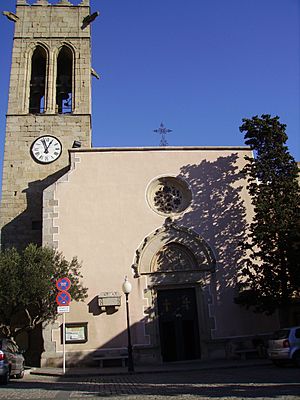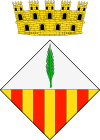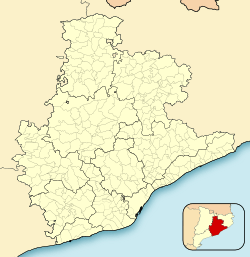Argentona facts for kids
Argentona is a lovely town in Catalonia, Spain. It's located in an area called the Maresme, which is on the coast. Argentona sits near the granite Litoral range mountains, just northwest of a bigger city called Mataró.
This town is a popular spot for tourists. It's also well-known for its gardens and plant nurseries. A local road connects Argentona to Cabrera de Mar and the main N-II road at Vilassar de Mar.
The center of Argentona has many interesting buildings from different time periods. The old church of Sant Julià was built in a style called Gothic. It was later fixed up by a famous architect named Josep Puig i Cadafalch. He also designed a special house called Casa Gari. Next to it is a small chapel, Sant Miquel del Cros, designed by Lluís Bonet i Garí in 1929. Its style is similar to the famous artist Antoni Gaudí's work.
You can also find several buildings from the 1500s and 1600s. There's an ancient Roman chapel called La Mare de Déu del Viver. Another interesting place is the old monastery (a place where monks live) called Sant Pere de Clarà.
Argentona is home to a unique place called the Argentona Water Jug Museum. This museum shows over 700 different water jugs! Some of them were even made by the famous artist Pablo Picasso.
Quick facts for kids
Argentona
|
|||
|---|---|---|---|
|
Municipality
|
|||
 |
|||
|
|||
| Country | |||
| Community | |||
| Province | Barcelona | ||
| Comarca | Maresme | ||
| Area | |||
| • Total | 25.4 km2 (9.8 sq mi) | ||
| Elevation | 88 m (289 ft) | ||
| Population
(2018)
|
|||
| • Total | 12,295 | ||
| • Density | 484.1/km2 (1,253.7/sq mi) | ||
| Demonym(s) | Argentoní, argentonina | ||
Contents
Culture
Argentona has a big town festival called Festa Major. It happens every year on August 4th. This celebration honors Saint Dominic, a very important saint.
Archaeology
Archaeologists found an interesting old building at a place called Can Blanc in Argentona. This building was used from the mid-1st century to the early 3rd century AD. It had several small rooms that seemed to connect to a large central courtyard. Experts think it might have been part of a larger Roman villa (a fancy Roman country house). However, they don't have all the proof yet.
Demography
| 1900 | 1930 | 1950 | 1970 | 1986 | 2010 |
|---|---|---|---|---|---|
| 2014 | 2615 | 2889 | 4058 | 7183 | 11.718 |
See also
 In Spanish: Argentona para niños
In Spanish: Argentona para niños
 | Laphonza Butler |
 | Daisy Bates |
 | Elizabeth Piper Ensley |





